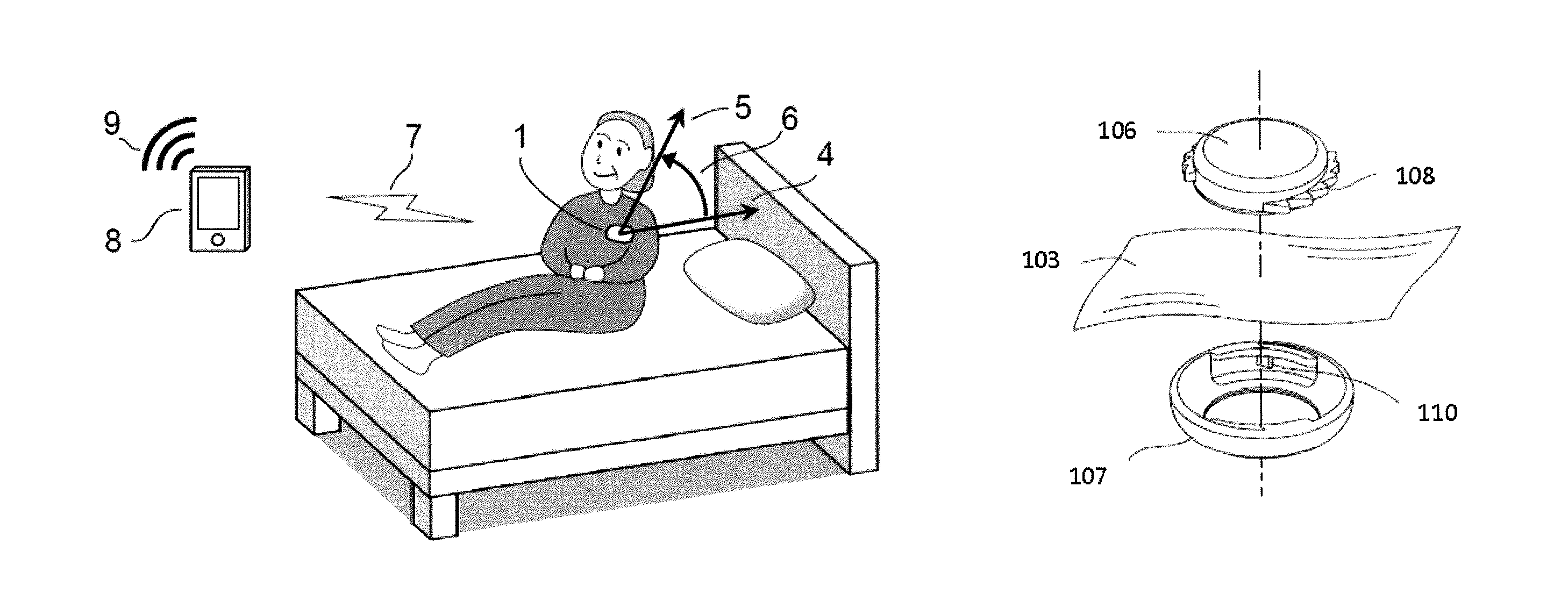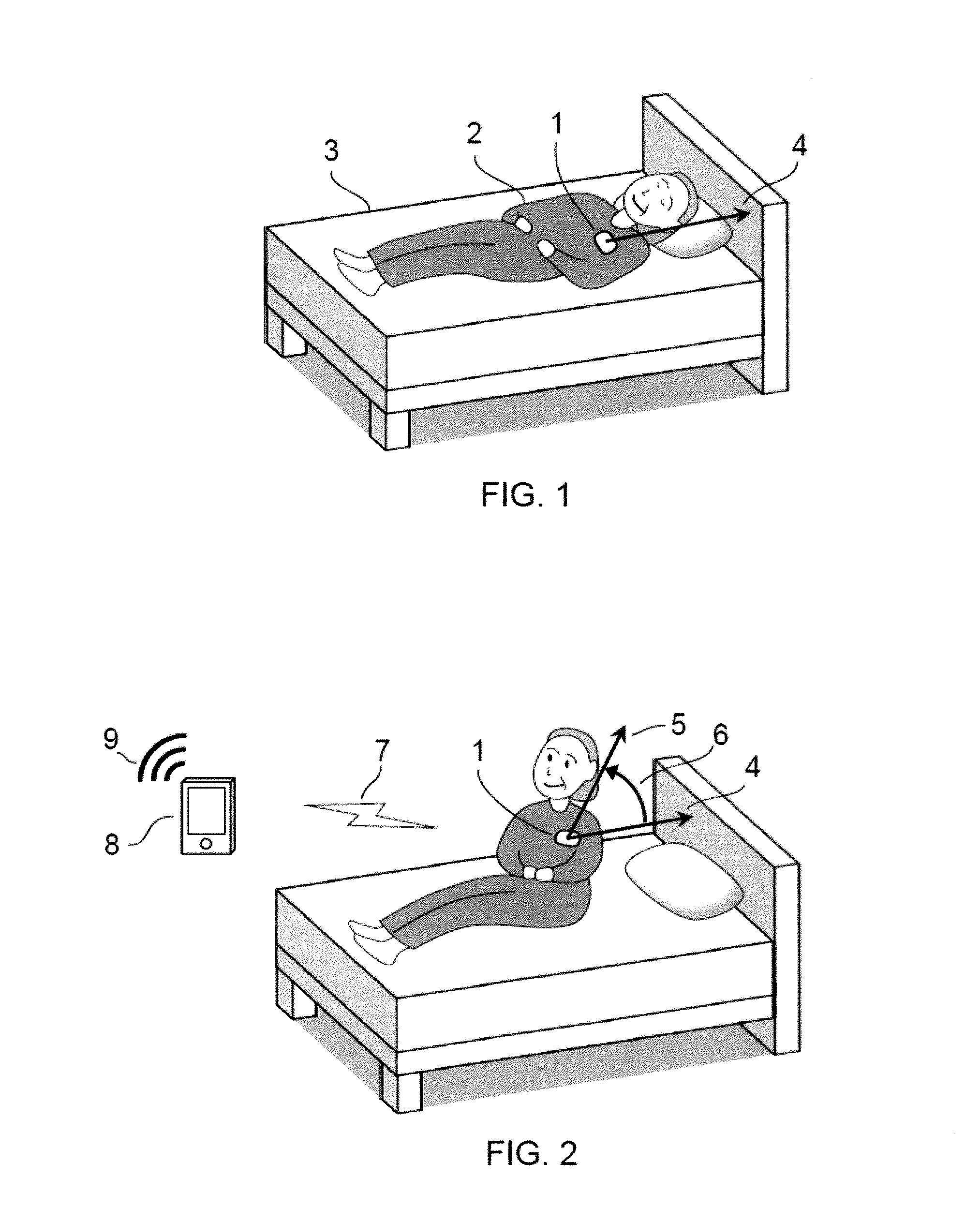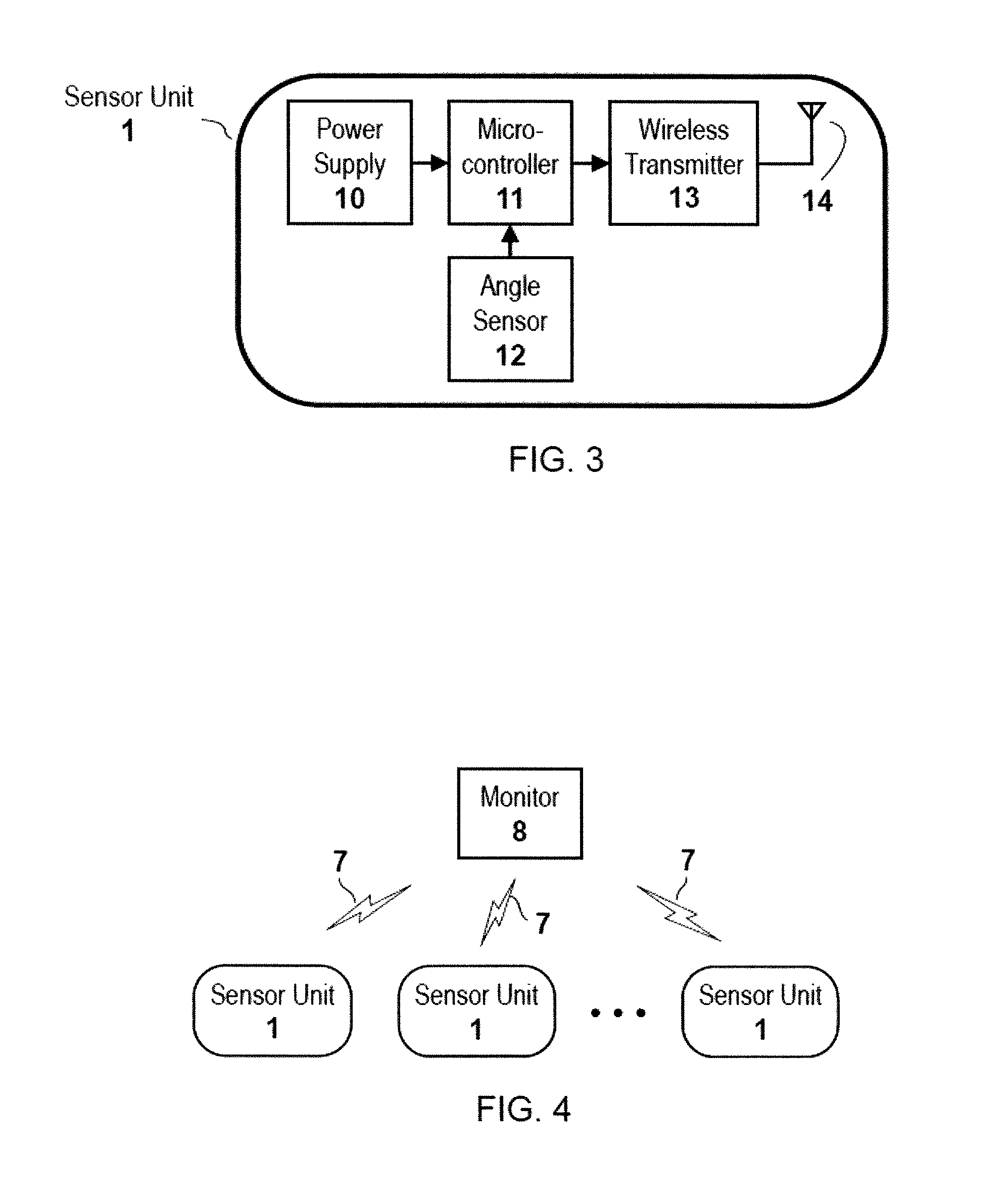Affixation of objects to garments
- Summary
- Abstract
- Description
- Claims
- Application Information
AI Technical Summary
Benefits of technology
Problems solved by technology
Method used
Image
Examples
Embodiment Construction
[0059]In general, described herein are methods and apparatuses for attaching one or more sensors to a subject's body. For example a sensor (e.g., devices such as angle-sensing units and systems including one or more angle-sensing units and / or one or more monitoring unit) can determine a change in gross body angle indicating that a subject wearing the device has gotten up and / or out of a bed, and in some variations a chair. Also described herein are apparatuses and methods for safely, securely, and detachably affixing objects (such as the angle-sensing units described herein) to clothing.
[0060]For example, FIG. 1, schematically illustrates operation of one variation of an angle-sensing unit. In FIG. 1, a subject 2 is shown lying down on a bed 3 wearing an angle-sensing unit 1 on his or her body. In general, the angle-sensing unit can be directly adhered to the subject's body, or affixed on the clothes, pajama, briefs, a belt or an accessory worn by the subject. The unit may be tightl...
PUM
 Login to View More
Login to View More Abstract
Description
Claims
Application Information
 Login to View More
Login to View More - R&D
- Intellectual Property
- Life Sciences
- Materials
- Tech Scout
- Unparalleled Data Quality
- Higher Quality Content
- 60% Fewer Hallucinations
Browse by: Latest US Patents, China's latest patents, Technical Efficacy Thesaurus, Application Domain, Technology Topic, Popular Technical Reports.
© 2025 PatSnap. All rights reserved.Legal|Privacy policy|Modern Slavery Act Transparency Statement|Sitemap|About US| Contact US: help@patsnap.com



